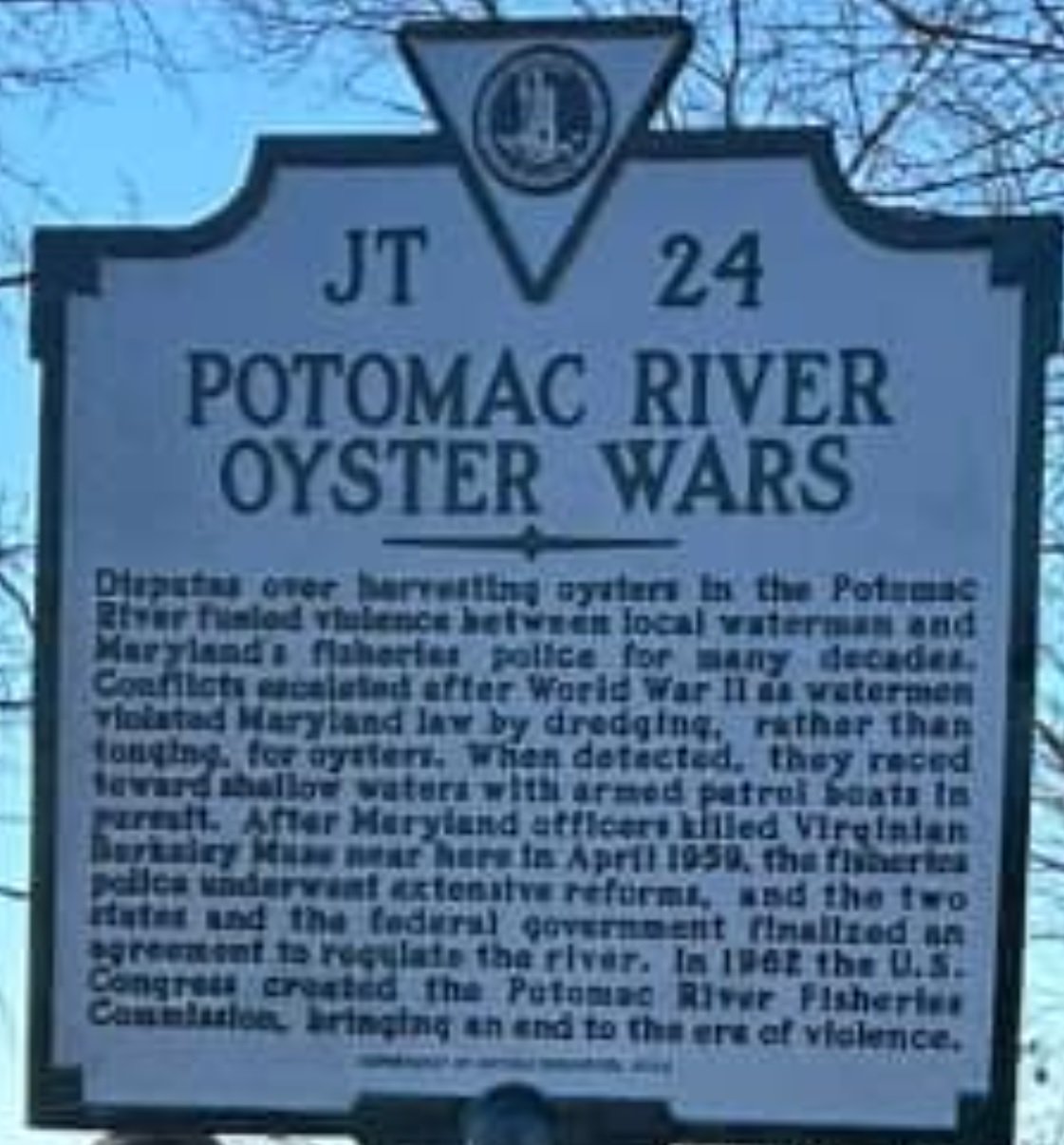Oyster Wars
The Oyster Wars Highway Historical Marker is unveiled at Lunsford Point on Friday, December 15, 2023 at 11:00 a.m.

"Disputes over harvesting oysters in the Potomac River fueled violence between local watermen and Maryland's fisheries police for many decades. Conflicts escalated after World War II as watermen violated Maryland law by dredging, rather than tonging, for oysters. When detected, they raced toward shallow waters with armed patrol boats in pursuit. After Maryland officers killed Virginian Berkeley Muse near here in April 1959, the fisheries police underwent extensive reforms, and the two states and the federal government finalized an agreement to regulate the river. In 1962 the U.S. Congress created the Potomac RIver Fisheries Commission, bringing and end to the era of violence."
The Historical Roadside Marker for the Oyster Wars at the corner of Irving and Monroe Bay Ave. has been approved by the Department of Historical Resources.
Donations towards the cost of the marker can be made at this link. Select "Oyster War Historic Marker Fund" from the dropdown menu.
A special exhibit on this topic was on display at the Museum in August 2010
Why the conflict, you ask?
The Potomac River offers some of the best oyster breeding grounds around. Back in the day, oyster tongers believed that the oyster dredgers were harvesting more than their fair share of the best ones. When they became less plentiful, the tongers pointed their fingers at the the dredgers, blaming them for their empty pockets.
Also, there was disagreement on where the line between Virginia and Maryland waters was. Watermen from both sides each thought the other were stealing oysters from their states. Virginia held fast to their portion of the Chesapeake Bay and charged Marylanders a toll to access the sea. Virginians were forbidden to fish in the Potomac River, owned by Maryland. These conflicts grew into fierce battles known as the Oyster Wars.
Berkeley Muse was a major figure in this conflict.
It dates back to the times of the early English settlers, who enjoyed the native American oysters, eating them roasted, stewed, raw and pickled. Different arguments cropped up over ownership of these tasty morsels found in different waterways within the settlements.
Oyster Wars Raged On
These arguments escalated and eventually, the two states came to an agreement and entered into the Compact of 1785.
More battles ensued, however. A Washington Post article from 1947 paints a picture: ''Already the sound of rifle fire has echoed across the Potomac River. Only fifty miles from Washington men are shooting at one another. The night is quiet until suddenly shots snap through the air. Possibly a man is dead, perhaps a boat is taken, but the oyster war will go on the next night and the next.''
In 1962, President John Kennedy signed the "Potomac Fisheries Bill" which calls for a bi-state commission to oversee the Potomac River.
More information and interviews can be found on the Watermen of Colonial Beach DVD available for purchase from the Museum for $20.
Return from Oyster Wars to History of Colonial Beach



New! Comments
Have your say about what you just read! Leave me a comment in the box below.